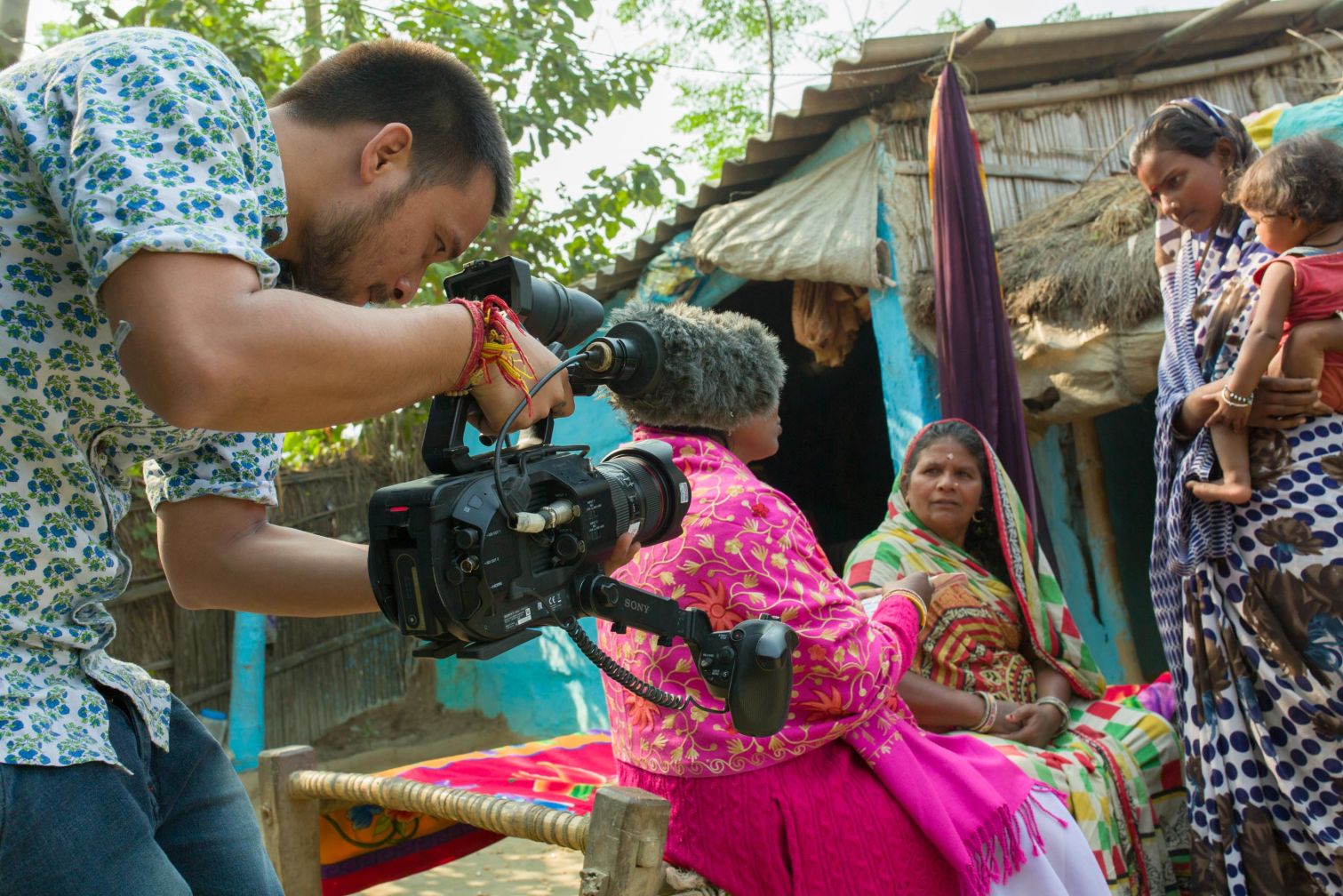Our World United to End Polio
Image

SummaryText
This immersive web-based series enables the reader to engage with photos, videos, animation, and stories about people who are working to eradicate polio around the world. Christine McNab, an independent multimedia producer specialising in global health and development, produced the series, which is the result of a collaboration of the United Nations Foundation with partners of the Global Polio Eradication Initiative (GPEI) and with funding from the Bill and Melinda Gates Foundation.
Our World United to End Polio features:
- Ending Polio in India: Meet Martha Dodray, an Indian health worker who has forged trust with the families who live in one of India's harshest climates. "We got to know people well. In the beginning they would sometimes reject the vaccine, but I built a good relationship with the community, and they accepted it. This was how we could end polio."
- Empowering Countries: Learn how Dr. Cara Burns tracks polio from all over the world and stays ahead of a virus that has taken some surprising twists.
- The Polio Vaccine Switch: Hear from Gladys Lingat, who is dedicated to bringing the latest global guidance to the families she serves.
- Pakistan: Taking the Politics Out: Witness Aziz Memon, Rotary PolioPlus Chairman and industrialist, who devotes much of his time talking with the politicians of Pakistan about polio eradication. He knows the need to advocate at every level of government.
- Luis: the First Last Case: Meet Dr. Roger Zapata, a Peruvian paediatrician who risked his life to investigate the case of Luis Fermin Tenorio, the boy who turned out to be the last person diagnosed with polio in the Americas.
- An Outbreak in the Netherlands: Listen to Dr. Harrie van der Avoort describe the weekend he made an unexpected discovery.
- How Europe Ended Polio: Learn how Dr. George Oblapenko, a Russian epidemiologist, created a cross-continental partnership to end polio in Europe.
- Celebrity Success in India: Find out how Indian film legend Amitabh Bachchan's simple tagline, Do boon zingdagi ke!, became known across the country through his public service announcements. The national mantra stretched from the biggest cities to the most remote villages: When UNICEF staff travelled to rural communities and said "do boon"- "two drops" - children would repeat back "zingdagi ke!"
- Community-Based Vaccinators in Pakistan: Meet Naureen, a community-based vaccinator dedicating her time to protecting families in high-risk areas of Karachi. Previously, vaccinators were frequently men who, under cultural norms, could not access homes if the man of the house was not present. Or, they were strangers to the community.
- Lessons from a Poliovirus Spill: Learn about Dr. Erwin Duizer, a polio laboratory specialist who shares lessons from the Netherlands after a recent poliovirus spill at a vaccine manufacturer.
- Chad: Across the Sands: Meet Awandi Epainette, a nurse working to reach nomadic communities as they move around the Lake Chad Basin. Abdel Aziz Kadai, a Chadian who works as a consultant for UNICEF, works with Nurse Epainette as he talks with the community, explaining why vaccination is important. He speaks in French and in turn, an interpreter translates into Kanembou, the local language.
- Chad: Across the Waters: Get a glimpse into the travels of Dr. Adèle Aluma, from the Democratic Republic of Congo, who has journeyed to areas on Lake Chad few health workers have been. The team has identified new settlements through travel and by using satellite mapping technology. To help build stronger local ties, they systematically call community leaders to tell them to expect the health workers and ask them to call back if vaccination teams don't arrive.
Publishers
Source
Our World United to End Polio website, February 7 2019; and email from Christine McNab to The Communication Initiative on February 7 2019. Image credit: Christine McNab
- Log in to post comments
